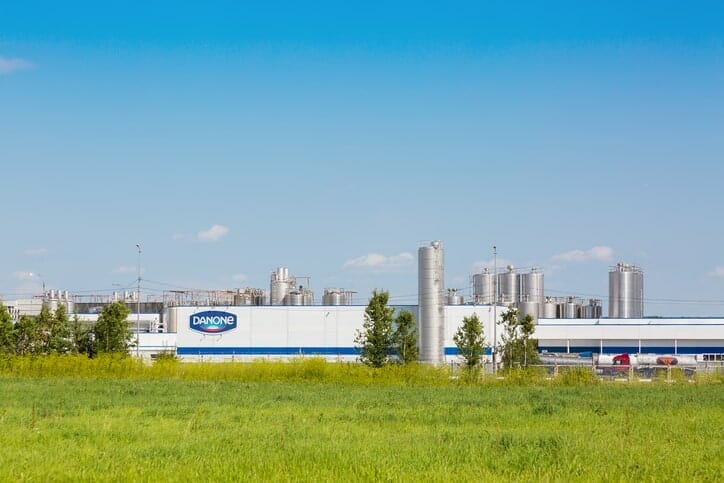Business has a key role to play in leading on sustainability in a complex world, said Cécile Cabanis, CFO of French multi-national food group Danone. In conversation with Eva Halvarsson, CEO of SEK 334 billion ($34 billion) Swedish buffer fund AP2 at PRI in Person in Paris, Cabanis told delegates in an opening session that the goal of the company is to contribute positively to all 17 Sustainable Development Goals.
Danone, which is celebrating its 100th birthday and operates in more than 100 countries with 100,000 employees worldwide, started its ESG journey nearly 50 years ago. Back then in a pioneering strategy, the company committed to its business extending beyond the factory gate. Today, a core belief is that a healthy business depends on a healthy society; that the health of the planet and its people, is intertwined.
The company has prioritised three SDGs particularly: SDGs 2, 3, and 6 around Zero Hunger, Good Health and Wellbeing and Clean Water and Sanitation, respectively. But other SDGs are just as important, said Cabanis. For example, the company is focused on better management of waste and natural resources (SDG 12) in line with its commitments towards the development of a circular economy. And it promotes inclusive growth as well as a safe and secure work environment for all. And since agriculture is responsible for about 31 per cent of global greenhouse gas emissions, Danone has also committed to contribute to the fight against climate change by becoming carbon neutral by 2050. “If you are not serious about putting this at the heart of how you do business, ultimately you will not have a business,” she warned, urging companies and investors alike to “shift the conversation” and not focus on the “short-term.”
In a particularly landmark innovation, Cabanis told delegates about how the company has tied its financing to ESG criteria. Two years ago Danone partnered with 12 global banks to lower its cost of borrowing if it increased its verified positive impact in the world. The deal on Danone’s $2 billion syndicated credit facility means its ESG performance (verified by a third party) will directly impact – upwards or downwards – the margin payable to the banks over the entire duration of the facility. “We are making progress, but it is still a drop in the ocean,” said Cabanis. “There is a tension between the short-term and what we need to do for the long-term. It is a tension that we need to manage.”
Cabanis also called for more homogenous reporting. She said the number of indices was “a mess” that required “teams and teams” at Danone to manage, with everyone measuring different things. “Everyone reporting in their own way is a waste of resources,” she said. She also urged delegates that reporting needs to be followed up with actions. “We can do it if we are all together,” she concluded.



